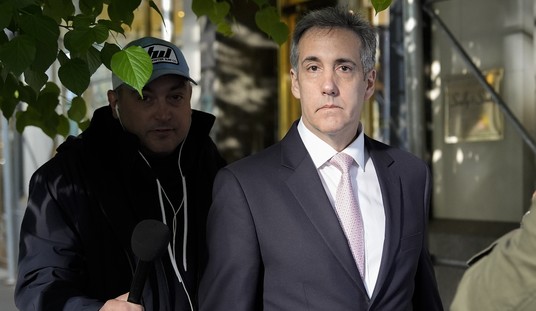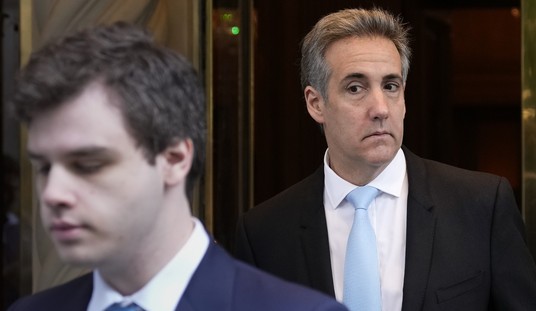“What’s your story?” I had been stopped for driving in excess of the speed limit — so much in excess, the police officer told me, that he was authorized to levy a fine of $2000 and to temporarily suspend my license. As if to clarify that it was no rhetorical question, he explained, “You have to give me a reason. Otherwise I will have no choice about the penalty.”
I stared at him blankly. I didn’t have a story, no urgent circumstance — injured child, dying relative, or abusive husband — to justify my transgression. It ran through my head that if he had a choice with a story then he must have a choice even without one — but I didn’t pursue the thought. “There’s no reason,” I heard myself saying rather sullenly. “I was just speeding.”
A pause ensued. “You realize,” he said, “that this is a serious infraction. You must be able to keep control of your vehicle.” Another pause. “I could take your keys right now. So I need to know what is going on in your life.”
Now I began to feel not just sullen but defiant. His logic was terrible. The speed I had been driving, though admittedly some 25 miles over the limit, was nowhere near the point at which a decent driver in good conditions would begin to lose control. And if losing control was the issue, then what difference could it make if something was “going on” in my life? It wouldn’t make the law less broken. If I were fleeing from an abusive husband, it would seem likely that I would continue speeding over the following days, weeks, and months out of anxiety and torment. If it turned out that I was racing to the airport because my sister was dying, should not my license be suspended all the more quickly to prevent the speeding that would certainly resume once I was back behind the wheel?
And given that the officer had no way of ascertaining whether I was telling the truth, and that most people will lie when offered such an inducement, why would he make any decision about my penalty based on a personal story?
While these unhelpful thoughts flashed through my mind, I considered how ironic it would be if my license were to be suspended merely because, when invited to do so, I could not come up with a mitigating story. Like most people, I am capable of lying, but I prefer to lie on my own terms, not someone else’s. Fortunately, at the thought of all the inconvenience and humiliation a lost license would cause, my eyes filled with tears — a good story any time. Seeing these, the officer let me go with a regular — still hefty — fine.
In the months following that incident, which came to occupy a place in my thoughts out of proportion to its material significance, I reflected that what the officer had asked of me was probably less a reflection of his personal beliefs and peccadilloes — he was likely not someone who took pleasure in hearing the personal stories of speeding drivers — than of the institutional culture within which he worked. His interest in my story almost certainly indicated the emphasis in the criminal justice system, in which not only judges but even police officers are encouraged to understand crime in its social context and to consider not only “intention,” always a part of the system, but also a range of personal factors when determining criminal responsibility.
This new orientation to judgment and to determinations of right and wrong is one of the most far-reaching phenomena in our culture today, permeating the juridical, political, and academic realms from root to tip, with manifestations, ranging from the risible to the grave, that are almost always pernicious.
In the field that I know best — the academic — the therapeutic orientation has assumed a dominance amongst both students and professors that would have been unthinkable just twenty years ago. It is almost inconceivable, in fact, that an institution once shaped by the merit principle — the conviction that intellectual achievement alone should determine an individual’s success, regardless of family name, affluence, or status — should now so widely discriminate according to life story. Students have always been keen, of course, to make excuses for poor work or missed deadlines, and most professors used to regard their hard-luck stories with the irreverence they deserved. But never before have students shown such unassailable confidence that their stories would, like an academic Open Sesame, guarantee the lifting of penalties. And never before has their confidence been so well-placed.
What used to be understood as the normal stress and drama of student life — difficulty concentrating, jittery distractedness during in-class tests, anguish following a breakup — have all now become bona fide life crises or even disabilities that exempt the sufferer from regular course requirements. I receive letters regularly from the Student Academic Success Service at my university demanding special accommodations for so-called disabilities that include depression, anxiety, alcoholism, and phobias. The accommodations range from copies of the lecture notes to extra time for exams and assignments and even a deferral of course requirements for up to one year. I am surprised now not that so many students have had themselves classified as disabled but that many more do not, so wide is the array of symptoms and conditions (weak memories, exam anxiety) for which accommodation can now be secured with a simple referral from a doctor or psychologist. The result is that an entire generation has grown up in a world where rules are changed, or abolished, so long as one has a compelling story. It is impossible to imagine that such a regime does not fundamentally alter one’s understanding of rules — weaken their regulatory power, dilute their meaning — whether one has ever personally flouted them or not.
If this phenomenon occurred only in the academic realm, it would be dismaying enough, but the fact that it has spread so rapidly into many major areas of North American life is deplorable and alarming. Canada’s justice system is now so fully imbued with the therapeutic mandate that Aboriginal offenders are identified in Canada’s Criminal Code for shorter sentences on the basis of their racial history and the stories of widespread community dysfunction it putatively explains. An entire Ontario town — Caledonia — has been terrorized by Native law-breakers who have been allowed to get away with outrageous behavior, with police watching but not making arrests, because of the guilt-inducing power of unresolved Native land claims. The Occupy Wall Street movement with its filth, violence, and contempt for the law is often not only tolerated but even celebrated in progressive circles for its claim to protest “the negative and destructive consequences of decisions made by people in power.” Israel is held to an entirely different standard of response from its terrorist adversaries because of the manufactured Palestinian story of eviction and homelessness. The examples could be multiplied.
A peculiar sanctity attaches to these stories almost in inverse proportion to their verifiability. To speak of verification, in fact, is understood to reveal a failure of one’s humanity. When the Canadian government chose to conduct a Truth and Reconciliation inquiry into physical and sexual abuse at Native residential schools of the twentieth century, it decided that the testimony of abuse victims would not be subject to the forms of cross-examination usual in a legal proceeding. Aboriginal survivors’ words would carry a weight of authority immune from such questioning. One may well wonder how such testimony could be relied upon, given that many of the events being described occurred decades in the past and are thus subject to the distortions of memory over time. To suggest, however, that Native residential school survivors might misremember their experience or even might exaggerate or lie for financial gain, or merely to claim their moment at the center of sympathetic attention, is to confess a form of cultural insensibility that few Canadians would openly avow. In confirmation of what the postmodernists have been telling us for years, all it takes to make history is to craft a compelling narrative.
And one might ask: what is harmed by generosity and compassion, by a spirit of leniency and flexibility, a pragmatic willingness to acknowledge the impact of past wrongs and present difficulties on individual and collective behavior? Much is harmed. Although I can think of cases in which it seems reasonable to bend a rule because of personal circumstances, I believe that such cases must be exceptional. The effects of our era’s insistence on elective leniency — leniency determined by a sad story as much as by any weighing of evidence, such evidence being almost impossible to calculate — are manifold and deleterious. It need hardly be said that personal responsibility is weakened in a culture in which exceptions are routinely granted for the unfortunate. Who would hold herself responsible for bad behavior or poor choices when the blame can be laid elsewhere (at the feet of the powerful, for example, or society in general)? Perhaps a kind of envy of disadvantage (or at least of faux-disadvantage) will result from the conclusion that hard luck stories are their own useful currency. Such envy may lead — has already led, in some circles — to overt competition amongst the dispossessed just as there used to be competition amongst high-achievers.
Doesn’t nearly everyone have a sad story, after all? If we search hard enough, we can surely find something — the lecherous uncle who made advances, the acne that would not respond to treatment, the aunt’s horrible cancer death — to bring forward as evidence of hardship and resulting maladjustment. And who wouldn’t thus search when the rewards are so immediate and tangible, such as special consideration and power? Why would anyone decisively overcome and then put aside an experience of disadvantage or maltreatment when the social and monetary advantages of re-living the experience are so great and come with so few drawbacks? It was undoubtedly unjust in a previous era to be made to feel shame about misfortune, especially misfortune beyond one’s control, but it is equally damaging, if less obviously so, to feel a socially sanctioned affirmation in it, a comfortable conviction of absolution and innocence. Those who are not compelled to take responsibility for their failures are ultimately prevented from taking responsibility for their achievements as well. And a society that encourages its members to define themselves according to helplessness in the face of adversity — whether large-scale injustice or personal bad luck — is one that no longer believes in greatness.
The worst of it is not only that people stop believing in themselves and in one another through a massive lowering of expectations. The worst is that they also stop believing in the institutions that underpin our civil society: the school system, the police, the courts, and government. When the rule of law is flouted, when institutional practice is dictated by personal whim, and when truth is replaced by narratives of exculpatory victimization, then the basis of our liberal democracy, with its commitment to individualism and equality, is imperiled. Our very values — the distinction between right and wrong, good and bad — become blurred and imprecise. Although we may all be grateful to have a fine reduced at the discretion of a police officer, the money we save in the moment — in that freeing but demoralizing moment of confession and absolution — will cost us dearly in the end.
Everyone has a story. What we need is equal treatment before the law, and an affirmation of merit and truth.








Join the conversation as a VIP Member